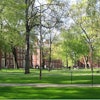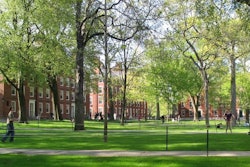 Brown University
Brown University
Opponents, including Brown, argue that these institutions give back to the community in other ways and should be exempt from such taxes. But many are saying it’s time for elite universities to stop acting like hedge funds with classes attached and start taking on a greater share of public responsibility.
“Unfortunately, well over 40% of our land in the city of Providence is exempt from taxes in large part because of colleges and universities,” said David Morales, Rhode Island Representative of District 7 in Providence. “That places the burden on working class families. These universities continue to grow rapidly in the city, removing land that is eligible for taxation. This has created a cycle where property taxes are rising to make up for lost revenue. We have to ensure more equity in our tax system.”
Morales sponsored both bills in Rhode Island. The first, H7925, would allow taxes on private nonprofit colleges’ properties, raising revenue for the municipalities’ general funds. Morales said he is considering an amendment to specify this tax would be levied on property not tied to the university’s mission.
The second bill, H7813, would permit municipalities home to a higher education institution to enforce a tax of up to 2% on each institution’s endowment. From this tax, all revenue would only be used to support that municipality’s public school district.
In Providence alone, if each institution were taxed the maximum 2% of their endowment, then the city’s public schools could receive up to $160 million. Brown University stands as the richest institution in Providence by far. A 2% tax on the university’s current $6.9 billion endowment would generate about $138 million for the city.
“I think the proposals to tax endowments in Rhode Island and elsewhere reflect that our very wealthy, elite institutions are not doing enough to provide educational mobility for large swaths of America,” said Dr. Charlie Eaton, an assistant professor of sociology at the University of California, Merced and author of Bankers in the Ivory Tower: The Troubling Rise of Financiers in U.S. Higher Education. “And that starts with them not enrolling enough students relative to their resources.”















